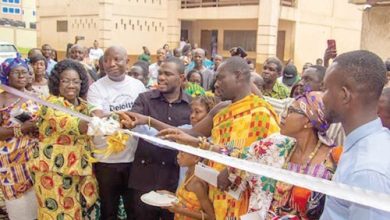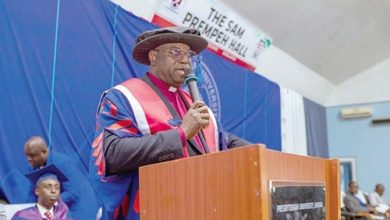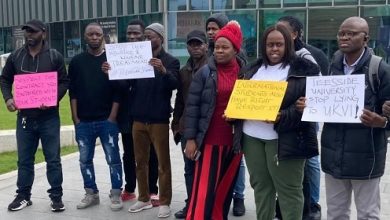We must do better on peace index
Abtvgh / Ghana Global Community
Ghana is often trumpeted to the global community as the most peaceful, stable and investment-friendly country in the sub-region.
Our leaders often tout these credentials to paint a positive image of the country and to attract both tourists and investors into the country for economic gain.
However, there are a multiplicity of developments that threaten the peace and stability of the country.
Unfortunate situations such as the use of intemperate language in the public sphere by political actors, conflicts over chieftaincy titles, and violence associated with illegal mining activities are gradually eroding Ghana’s credentials as an oasis of peace.
We have often overlooked these dangers or threats to the peace we enjoy in the country, with the argument that the country shall never descend to the stage of conflict or violence because Ghanaians are peace-loving.
This is where we get things wrong and allow threats to degenerate into something unexpected.
After all, the countries that have challenges with internal security had treated with careless abandon the threats posed by insurgents fighting for their rights, to possess their lands and obtain some of their natural resources.
The Daily Graphic finds it not surprising that Ghana had lost its position as the Most Peaceful Country in West Africa to Sierra Leone in the latest Global Peace Index.
Not only that, the country also slipped to the fourth position, from its second place as the Most Peaceful in Africa in the 2022 index.
According to the Chairman of the Governing Board of the National Peace Council (NPC), Rev. Dr Ernest Adu-Gyamfi, the decline was attributed to threats such as armed robbery, attacks on journalists, political violence, land guard menace and perceptions contributing to the ratings and compilation of results.
This development is worrying, especially so when the country is protecting itself against terrorists activities and violent extremism that have already threatened the stability of neighbouring countries such as Cote d’Ivoire, Togo and Burkina Faso.
Fortunately, these are factors which are well-known to all of us and addressing them will be much easier than allowing those threats to degenerate into a bad situation.
The Daily Graphic believes that if all the stakeholders engage one another in an open and frank manner, the country could be finding a solution to the challenges confronting its peace.
Such an engagement should be executed in an environment of trust and confidence to help deal with the possibility of these threats degenerating into extremism.
It should rather engender understanding and tolerance.
If we must build resilience against terrorism and violent extremism, we must join in and support efforts of the NPC, the Ministry of National Security and the National Commission for Civic Education (NCCE) to educate the populace not to take things for granted.
We commend the NCCE for rolling out the Preventing Conflict and Violent Extremism (PCVE) project in the five regions of the north, and the Oti and Bono Ahafo regions.
The Daily Graphic sees the PCVE initiative as a perfect way to take the bull by the horn.
Therefore, all stakeholders, including chiefs, the security agencies, opinion leaders, faith-based organisations and civil society organisations (CSO) must work together to create awareness, educate and sensitise members of the public to the need to identify and nip the triggers of conflict in the bud.
We are also of the view that our chiefs, landowners and political office seekers must do the right things all the time and not to engage the services of hoodlums to unleash mayhem on innocent persons just to push their selfish interests.
We need to remind ourselves that insurgents often exploit vulnerable communities for their nefarious activities.
We must not provide the fertile ground for aggrieved persons to use unorthodox measures to seek their rights.
The Daily Graphic holds the view that those responsible for the adjudication of differences must also deliver on their mandate in a manner that will satisfy parties involved in any dispute.
We believe that the country can regain its position not only as the peaceful nation in West Africa, but Africa as a whole in the global rankings.
This requires the establishment of a vibrant peace-building infrastructure that strengthens partnerships and promotes inclusive and participatory governance.
Let us all work hand in gloves to reclaim our enviable position on the peace index.
It is a collective responsibility.
After all, a country is like a boat; when it sinks, it spares no one.



